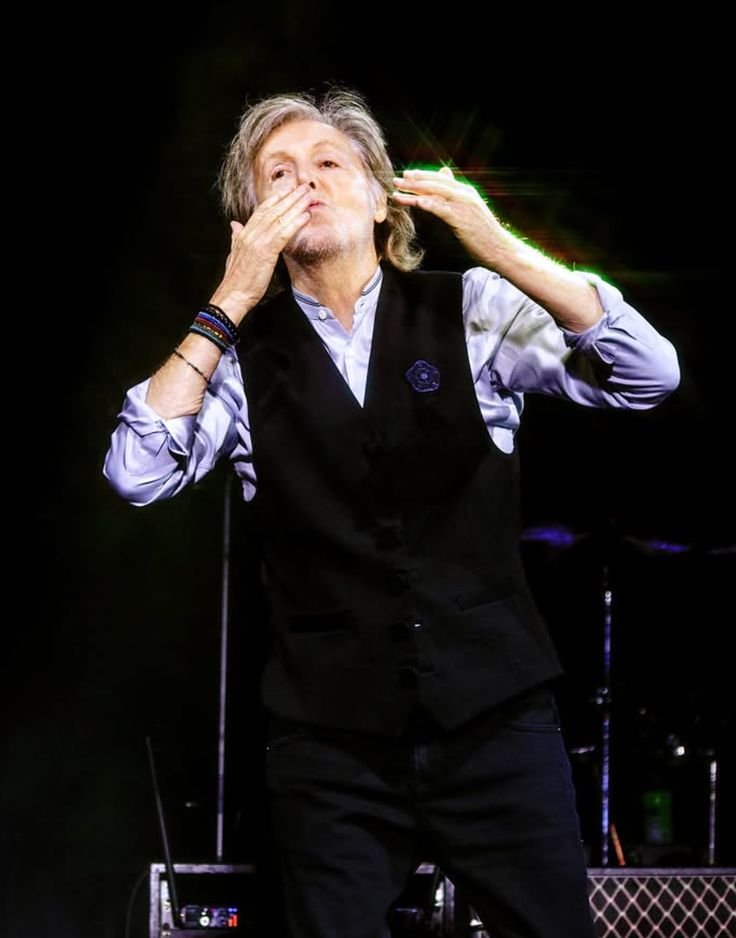It’s weird to think that our musical heroes have influences, too.
The further up the musical ladder you get, the more one sees artists that occupy those rarified positions, like Paul McCartney and Joni Mitchell, more as mythical figures than actual human artists. There to influence rather than be influenced by anyone else.
That’s just it though, no matter how many legendary albums they might have to their name. No matter how many nights at Wembley Stadium they’ve sold out. No matter how many novelty wigs they’ve had made in their follicled image, they’re all (hopefully) still fans of music in the end.
There are actually a few better examples of this phenomenon than ol’ thumbs aloft himself. The truth is most people who occupy McCartney’s level of fame and reverence in music have a rather complicated relationship with music. After all, they’ve arguably mastered the art and are probably looking for the next realm to conquer. Or, in Mitchell’s case, they spent too much time dealing with music industry bullshit to ever want to deal with more of it ever again. Understandable attitudes, especially that last one, but Paul McCartney is something very different.
At his core, he’s still a die-hard music obsessive. He still looks for the next thing to inspire him, much like fellow certified legend Elton John. Unlike the grand dame though, McCartney is less interested in interviewing the people whose music he loves and more interested in making music like them. Despite his reputation for backwards-looking “granny shit” (to use the words of John Lennon), McCartney has always been a risk taker. He pushed The Beatles to some of their loudest, most extreme moments and some of their quietest and most experimental.
Then, when he went solo, he was constantly innovating and responding to changing times. Making proto-indie records in the early 1970s, blending African music with then-modern Arena rock with his work with Wings later on in the decade and even going so far as to start the trip-hop side project The Fireman in the 1990s. Hell, as rightfully pilloried as the likes of The Frog Chorus and Give My Regards To Broad Street were, they were at least interestingly bad.
So, which legend outdid Paul McCartney?
Perhaps this urge came from something that happened shortly after McCartney released a record that, even after his work in his other band, stands proudly as one of his most successful endeavours. The 1973 effort Band On The Run has an incredible legacy in its own right. Pretty much single-handedly establishing the solo career of Paul McCartney as its own beast and not just a way that people could see Beatles songs performed live after the band split.
It’s not just the music itself that has proved inspirational though. People have sought to copy the very making of the album, and not just two-bit chancers either. One of the most successful and legendary artists of the 1960s and 1970s took inspiration from Band On The Run to make an album that might just be even better. McCartney, ever the man with one eye on his legacy, spotted this blatant act of copying but even he couldn’t begrudge it, as he said in an interview with Rolling Stone.
“What’s the expression?” McCartney said, “A good artist borrows, a great artist steals? Fair enough! We’re all heavily influenced. When I heard Graceland, I had always loved African things. I’d gone to Lagos to do Band on the Run. I had a similar idea in mind — to be influenced. Everybody does it in all forms of art — uses their influences as a turn-on. The difference with Paul is he does it very well. Graceland was dangerous territory, and he more than pulled it off.”
While there is more than a hint of sour grapes there, McCartney is actually showing us proof of what we were talking about before. While there’s a hint of chagrin about being (in his mind) copied, McCartney is mainly focusing on how spectacular Graceland was, and fair enough, he should. A sign that even a figure as rarified as Paul McCartney still keeps his ear to the ground and doesn’t take his spot as one of the most legendary figures in music for granted.
